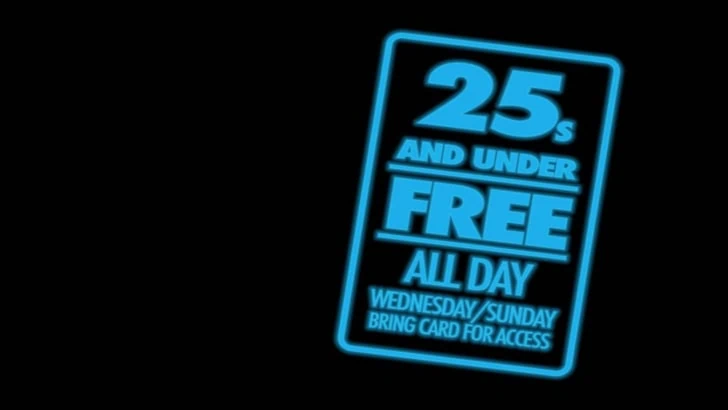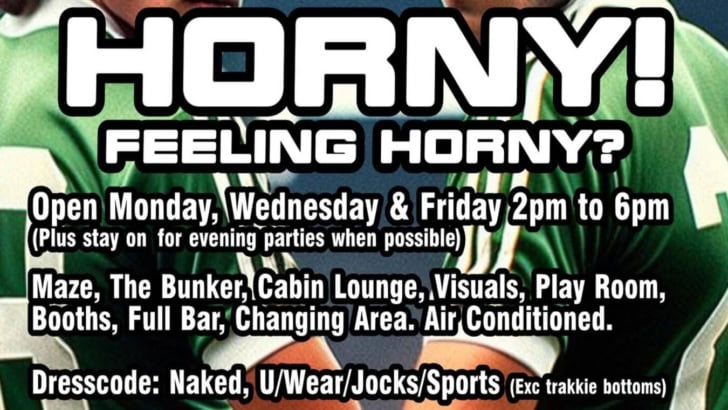The advantages and scientific validity of PrEP as an HIV prevention drug have been proven in numerous studies over the last few years. Recently, London sexual health clinic 56 Dean Street reported a massive 80% drop in new HIV diagnoses since 2015, and attributed it primarily to increased knowledge and usage of PrEP.
However, a lot of negative preconceptions and stigma surround usage of the drug. Here, experts give us both facts and opinions, and tell us why it should not only be accepted, but celebrated.
Greg Owen, activist and founder of IWantPrEPNow

Hey Greg! Tell us why PrEP is important.
The first reason is because it works! If you take PrEP as directed, it offers almost 100% protection from HIV. Sounds too good to be true right? That’s exactly what I thought when I first heard about PrEP. It also has other benefits – most significant is the removal of fear. Gay men have lived with that looming fear of HIV for thirty-five years. PrEP offers the opportunity to increase aour intimacy and pleasure during sex – and a chance to let go of some of our anxieties. Most people don’t experience any side effects. If someone does experience side effects, they’re usually mild and pass within a week to a month.
Why do you think there’s stigma around using PrEP?
There are many reasons why stigma exists, but its main fuel is ignorance and fear. Specifically with PrEP stigma, we need to look at what’s driving it. I used to get trolled a lot when I first started raising awareness of PrEP and it hurt. But I came to the realisation that PrEP shamers and PrEP supporters are actually coming from the same place, just different angles. PrEP-shamers are focusing on the fear instead of removing the source of the fear.
PrEP is something new. We’re asking people to rethink HIV prevention and incorporate the new tools, namely PrEP and TasP. (treatment as prevention). When a person with HIV has been on treatment for six months and has an undetectable viral load, they cannot pass on the virus.
What advice would you give to people who are thinking of going on PrEP?
We need to be honest when we discuss the kind of sex we have. If someone has had condomless sex recently and is likely to again, then PrEP is a good idea for them. Some people struggle to negotiate condom use. Especially if you’re the bottom, you have to rely on someone else to put the condom on. Some of us do chemsex, and our boundaries and decisions may blur. Some people might be great at using condoms but just want that extra reassurance. And there will be some people who need PrEP for the mental and emotional benefits. Whatever your motivation is, if you think PrEP is right for you, don’t stall. Enroll on the PrEP Impact trial or use iwantPrEPnow to order PrEP online. The most important thing is to make sure you are definitely HIV negative. Visit your sexual health clinic for tests and advice.
What results have we seen from people using PrEP over the last year or so?
We started to see some pretty extraordinary things happen in 2016. There was a 35% drop in new diagnoses at five central London sexual health clinics and 18% elsewhere in London. England as a whole reported a drop of 16% in men who have sex with men. That’s historic. These drops in HIV diagnoses in gay and bisexual men are being driven by people using self-sourced PrEP. Not only that, PrEP has started to change the way we talk about sex and the way think about sex.
Why is it important to use PrEP?
PrEP not only protects you from HIV, it protects all of your HIV negative partners too. We know that most new HIV infections come from people who don’t know they are HIV positive. PrEP also removes the divide between people of different HIV statuses. I’ve had some beautiful messages from mixed status couples who feel like they are free to love without fear of HIV. It’s really helping to deconstruct HIV stigma too. And legacy – I have 3 young nephews. I’d really like to think that by the time they are teenagers, that we will have reduced new HIV infections so much that they never have to worry about getting HIV. Wouldn’t that be an amazing thing? If we were the generation that worked towards the end of HIV? We have the tools. We just need to use them.
For more info and to purchase PrEP, head to www.iwantprepnow.co.uk
Jon Clarke, Charge Nurse at 56 Dean Street
PrEP (Pre-Exposure Prophylaxis) is important as an additional tool to prevent HIV transmission. At 56 Dean Street, PrEP is part of our Plan Zero campaign aimed at gay men, to end the transmission of HIV in London. Along with advocating condoms, regular testing, rapid-start HIV treatment and being aware of how to and when to get PEP (post exposure prophylaxis). Through international research (PROUD Trial/Ipergay Trial) we know that taking PrEP as an HIV prevention method is highly effective and has contributed to a reduction of new HIV diagnoses both in London and other cities across the world.
The stigma around taking PrEP is complex, and often relates to a person’s individual belief or reasons for taking PrEP. For some, there is an opinion that PrEP negates the need for condoms and therefore exposes a person to other infections through unprotected sex. For others, taking PrEP to prevent HIV suggests that the person ‘takes risks’ or is ‘promiscuous’ with sex. Anecdotally, it has been suggested to gay men that if you’re ‘safe’ why do you need to take PrEP?! It is important for sexual health clinics such as 56 Dean Street to break down stigma, especially in relation to PrEP. We must all recognise that an individual who chooses to take PrEP can be for a variety of reasons and is very much a personal decision. We fully support anyone who chooses to take PrEP and will monitor them on an ongoing basis.
My advice would be to come and talk to us at 56 Dean Street before you start PrEP. We can help you decide if it’s a good option, and also how you might want to take PrEP. We will also look after and monitor your sexual health care and further tests whilst you take PrEP. It is very much a personal decision. Our website dean.st has further information about this and also how to book an appointment with us.
56 Dean Street has been monitoring people on PrEP for the last two years. We started off by testing the generic formulations of PrEP online to ensure the quality and effectiveness of the drug. Although the NHS isn’t currently funding PrEP for everyone, we have supported anyone who buys PrEP online through regular sexual health screening. We know PrEP made a significant impact in the reduction of HIV transmission in London last year. The NHS Impact Trial was launched in October 2017, funding 10,000 places for PrEP. We have recently reported an 80 per cent fall in new diagnoses of HIV, helped by our Plan ZERO program that focuses on early diagnosis and treatment of HIV. Part of this is the trial of pre-exposure prophylaxis (PrEP), which if taken before sex, protects people from catching HIV and can help drastically reduce the number of people becoming infected. Combined with condoms, these new prevention methods mean that we finally have the tools to beat HIV. The dramatic drop in new diagnoses show that if we attack HIV from all angles we could end transmission completely.
Taking PrEP, despite some of its stigma, actually encourages people to test regularly, to come to sexual health clinics and engage, where a lot of gay men still don’t. PrEP for many gay men has also changed their feelings and emotions to sex. HIV can be scary when trying to navigate your sex life in London. Many men say they can now actually enjoy sex because of PrEP as it has reduced or taken the fear away. Gay men also report that their condom usage is still high, but that taking PrEP is an added safeguard. It is important to recognise that PrEP isn’t a lifetime drug unlike HIV treatment. PrEP can be taken for a period of time whilst an individual feels it is necessary or until circumstances change. Ultimately, PrEP needs to normalised and recognised as an HIV prevention tool in the same way condoms and regular testing are. 56 Dean Street is here to help and advise you on PrEP – just come and see us in Soho.
The 56 Dean Street Clinic is at 56 Dean Street, London W1D 6AQ. For more info, head to 56deanstreet.nhs.uk, or follow them on Twitter @56DeanStreet
Philip Samba, Health Improvement Specialist for BAME MSM at Terrence Higgins Trust

PrEP is extremely important because, when taken correctly, it prevents HIV from establishing itself within the cells of anyone who takes it. Studies across the world have shown that unequivocally PrEP works, giving us the potential to eradicate HIV completely. What makes PrEP revolutionary is that most people who take it either don’t experience side effects at all, or if they do, they tend to go away on their own within a few weeks. Side effects can include stomach problems, headaches or tiredness. This is a massive improvement to the HIV medication of the past where side effects were much more severe.
MSM (Men who have Sex with Men) from BAME (Black, Asian and Minority Ethnic) groups and trans people are disproportionately affected by HIV, with prevalence being extremely high within Black African men and women. However, as this has always been the case and continues to be so worldwide, focusing on African people can make it seem like other demographics aren’t affected at all, which really isn’t the case. There is an especially high prevalence within Latin American people (particularly Brazilian born MSM), Asian men and trans women of colour amongst others.
The PrEP Impact Trial has begun which will run for three years and will enrol a total of 10,000 participants at high risk of getting HIV. The trial aims to address what the demand of large scale PrEP is in England, assess the impact of PrEP on new HIV diagnoses and sexually transmitted infections, how many people will accept PrEP if it was offered, and how long those who accept will use it for.
Being gay, black and of African descent, I’m in three categories that are disproportionately affected by HIV, which makes it especially important that I take care of my sexual health. The other reason being that it gives me an opportunity to educate others about it. I can raise awareness about it and I can discuss access to it. Now that I’m on PrEP, I no longer need to worry about a sexual partner’s HIV status because I am protecting my own, as well as any other HIV negative partners I have. It has completely reduced my stress and the constant anxiety about HIV transmission. It has enhanced pleasure and intimacy for me and it has been so empowering; I feel like a massive weight has been lifted off my shoulders.
 NAZ
NAZ
Annual figures released last year by Public Health England showed a large decrease in new HIV diagnoses among white gay and bisexual men; the first decline recorded since the start of the UK epidemic. While this in itself was a cause for celebration, it only tells part of the story of the fight against HIV. Black, Asian, and Minority Ethnic (BAME) communities still make up a disproportionate amount of new HIV diagnoses. Although they have seen diagnoses decrease steadily over the past decade, they are more likely to be diagnosed at a later stage, which brings its own set of problems.
NAZ is a charity that provides HIV support services to BAME communities in London. We spoke with them to find out some of the challenges they face.
How did 2016’s HIV diagnosis figures for the BAME community compare to those seen with white gay and bi men?
The fall in new HIV diagnoses among gay and bi men was most evident in London, with white men experiencing a 37% decline in 2016 compared with 2015. There was also a decline in new diagnoses among black and Asian gay and bi men in London of 23% and 34% respectively over the same time period. Among BAME heterosexuals, there has been a significant decline in new HIV diagnoses over the past 10 years. However, this is largely due to changing migration patterns resulting in a fall in the number of new diagnoses among Black African communities.
The BAME community has an above-average rate for late HIV diagnoses. Whaat are the reasons for this and what issues does it cause in the long run?
In 2016, 39% of White people were diagnosed with HIV late versus 54% of Black Africans and 47% of Black Caribbeans and Asians respectively. Tragically, late diagnosis is associated with a ten-fold increase in the risk of death within one year of diagnosis and increases the risk of onward transmission of HIV. Our experience of reaching BAME communities through HIV prevention strategies has been mixed. HIV is not just a medical condition to many BAME cohorts; HIV-related stigma remains a key factor preventing individuals from taking a test. A large survey of people living with HIV found that BAME people are twice as unlikely to disclose their HIV status compared to white people living with HIV.
How do you overcome these challenges?
We design and deliver culturally sensitive, targeted programmes that are driven from the community and work at the intersection of race, gender and sexuality. Where possible, we work in partnership with local agencies serving BAME communities, including faith-based groups, enabling us to develop a trusted relationship with the community. For example in Lambeth, Southwark and Lewisham, the boroughs with the highest prevalence of HIV in the UK, NAZ work in partnership with London Friend, GMFA and Race Equality Foundation to deliver targeted work for Black African and Caribbean communities, as well as gay and bi men. Furthermore, expanding HIV testing beyond routine settings is critical in ensuring BAME communities can be diagnosed in a timely manner. NAZ and other sexual health organisations provide community-based HIV testing which has been shown to be an effective way to increase the uptake of testing in these communities. Online activity targeting BAME communities has yet to be optimised in the same way as white gay and bi men. We are working to develop platforms to reach at risk BAME communities online. Lastly, we believe that strategic leadership for this agenda should be driven by BAME communities to foster ownership and shared vision for improved sexual health and wellbeing.
How does uptake of PrEP in BAME populations and heterosexuals compare with gay and bi men?
Uptake of PrEP has been very slow among at-risk heterosexuals. This is in part due to the factors previously mentioned, but also a consequence of not only low levels of knowledge and understanding of PrEP, but around sexual health knowledge more generally. There is still a misunderstanding that HIV only affects gay and bi men, and this is something that as a HIV sector we need to address. The other important issue is that there are clear criteria to establish whether gay and bi men are clinically eligible for PrEP. On the other hand, for heterosexuals, these criteria are less defined making it more challenging for healthcare providers to ascertain eligibility and recommend PrEP in this population. However, it is really important that ALL groups at risk of HIV are aware of and have access to PrEP in order to prevent widening health inequalities.
What plans do NAZ have in 2018?
Over the next 12 months NAZ will be rolling out its BACK 2 Basics campaign targeting BAME communities in a way that embraces the inherent diversity within the population in relation to culture, language and sexual health needs. We recognise that replicating the same methods that have been used to reach and engage white gay and bi men is not optimal and necessitates a more nuanced approach. The campaign will seek to improve sexual health knowledge in BAME communities and encourage individuals to manage and maintain their sexual health. A key component of the campaign will be to raise awareness about PrEP, its availability and potential to reduce new HIV diagnoses in the UK.
For more information on the work NAZ carries out, please visit naz.org.uk




















